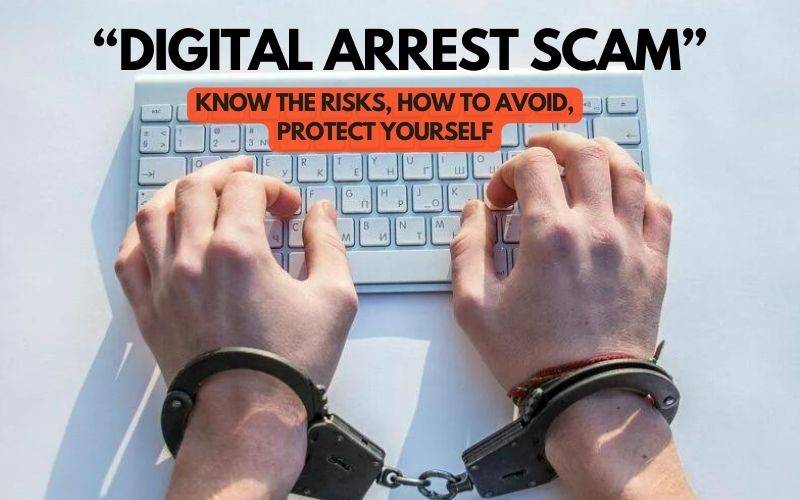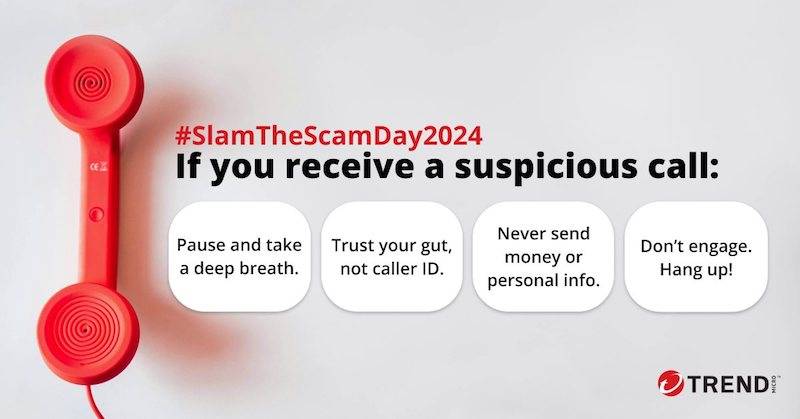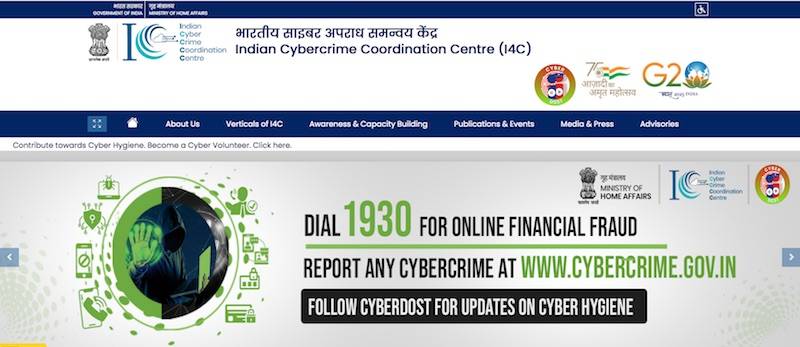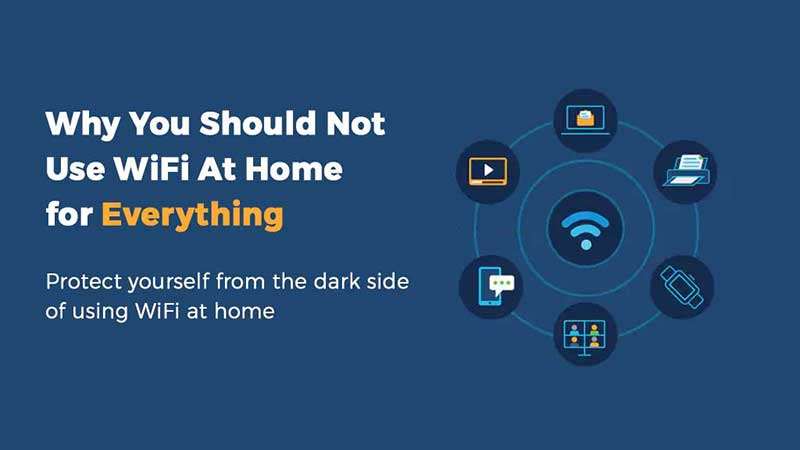
Key Points
- The article highlights the rise of “digital arrest scams” targeting Indians, exploiting fear of online arrest to extract money or personal information.
- Scammers impersonate law enforcement, creating panic and urgency, then demand money to resolve the fake charges.
- Tips to identify scams include avoiding unexpected calls, not sharing personal information, and verifying messages from official sources. If targeted, stay calm, cut communication, and report to authorities.
- Protection measures include staying informed, using strong passwords, and limiting social media sharing. Sharing knowledge can help prevent others from falling victim.
- Resources for help include cybercrime reporting portals and educational websites. By staying vigilant and informed, individuals can navigate the digital world securely and protect themselves and others from scams.
The time we live in now, is full with gadgets and technology. We can’t disagree that these technologies make our life easier in many ways. But the benefits, with help of these technologies, the dishonest people always find new ways to trick. One of these tricks, which many Indians fall victim to, is called the “digital arrest scam“. Now, don’t let the name confuse you. This isn’t something the police or the law actually does. It is a sneaky trick cooked up by scammers to take your hard-earned money.
The Rise of Digital Arrest Scams
In India, there is a growing problem with the digital arrest scams. These scams are actually hitting people from every part of the society, regardless of age or the background. Scammers take advantage of the fact that more and more people are using digital transactions and might not know much about the cybercrime. They trick people into thinking they have done something wrong online and then use that scheme or trick to grab money or personal information from them. It is a tricky situation that is affecting a lot of people nowadays.
You may also like: Fake UPI Payment: Identify, Avoid and Protect Your Wallet

What is a Digital Arrest Scam?
Imagine someone calls you or send message and say that they are going to arrest you online. It sounds scary for a second, right? Yes, but remember, it is all a big lie. The scammers created this term called a “digital arrest” just to trick and fool people. Be assured that there is no such law in reality which can arrest you online. When the police catch someone for breaking the law, they usually do it in person. Not by locking them out of their online accounts.
These scammers pretend to be law enforcement officers, like police or government agents, to scare people. They will say you are involved in something which is illegal. Like money laundering or getting shady packages from somebody illegally. Then they hit you with the threat of a digital arrest. They will tell you they are going to lock up your bank accounts or shut down your social media or even spy on you through your gadgets. And It is all just to make you panic and compel you to do whatever they say, nothing else.
Their goal? They want your money fast, before you catch on to their scam. If someone mentions a digital arrest, don’t believe them. It’s just another trick to steal from good people like you. Be careful and keep your eye out for tricks online!
How Does the Digital Arrest Scam Work?
The digital arrest scam works like this:
Impersonation:
The whole game starts when you get a call or message from someone that you really don’t know. That person usually says that they are calling from the police or any law department which absolutely falls. They make their caller ids look legit for the scam.
Creating Panic:
Then they start scaring you by saying how you are caught for doing something wrong and how you could get into serious trouble. To support their claim, they even give you some proof or personal details they found when searching about you from the internet or from your social media presence.
The Threat of Digital Arrest:
Then the big threat comes into picture when they talk about the “digital arrest”. This basically means, they threaten that they will shut down your online life and block you from using the internet for important things like banking or talking to people.
Extracting Money:
After they get you all worried and panicking by believing you are in a mess, they will offer you a way out of the mess too. Usually they ask you to send money their way, either to a specific account or through some money transfer service. They will tell a story by saying it is a fine or to clear your name. But really, it is just a way for them to grab your money.

How to Identify a Digital Arrest Scam
Here is an easy way to understand – Pay attention to these signals that something might be wrong:
- Unexpected Calls: No law enforcement official or any police do not randomly call you or send text messages to you regarding any investigation or legal matter. If someone contacts you and claims to be from the police or government, then it is probably a scam.
- Threats and Urgency: Scammers often try to frighten you and make you feel that you have to do something right away. They usually don’t want to give you any time to make a decision by thinking about the matter carefully and logically.
- Requests for Money or Personal Information: Real police or officials won’t ask you for money or personal information over the phone. So, if someone is asking for your bank information or passwords or OTP. Then be sure, it is most likely a scam.
Remember, if the law official needs to talk to you, they will do that in the proper way. They will talk to you face-to-face or use trusted communication methods.
Why Does This Scam Work?
The Psychology Behind the Fear
The scammers generally fool you by using your personal info to sound believable to you. So that you start to believe that they know a lot about you, like where you live, what you have recently bought online etc. They do that to establish their trustworthiness in your mind. When they rush you into making a decision, it is really harder for you to think clearly and difficult to say no to them. Moreover, if you are not tech savvy or not so familiar with online things or activities, scammers will scare you by using the word “digital arrest“. The only purpose is to make you believe how serious their threats are.
You may also like: How to Stop Getting Continuous OTP Messages
What to Do If Targeted by a Digital Arrest Scam
If someone tries to trick you with a digital arrest scam and they’re threatening you with arrest, don’t panic. Just keep calm and avoid talking to them. Stop the conversation right away, whether it’s a call, message, or video chat. Do not hesitate to cut all their communication and block their number as well.
After that, let the authorities know about what happened. You can contact your local police station or cybercrime department. They have special ways to deal with these scams. Reporting the authority not only helps you but also helps the authorities to catch the bad people behind the scam. You can also tell the Federal Trade Commission (FTC) about it at at https://reportfraud.ftc.gov/.
How to Protect Yourself
The best way to protect yourself from the digital arrest scam is to stay alert and cautious. By being aware and cautious, you can greatly lower the chances of becoming a victim.
- Don’t Engage: When you get strange calls or messages, it is important not to respond to them right away. Let them go to your voicemail. Later you can check if the caller is genuine by using official channels.
- Double Check: Always double-check if a message claims to be from a particular agency. Look up their official contact details on their website and contact them directly to confirm the message. Do not call the phone numbers which are mentioned in those suspicious messages.
- Strong Passwords & Security: Keep your online accounts safe by using strong and unique passwords. Also, enable two-factor authentication whenever possible for added security.
- Stay Informed: Knowledge is key to protecting yourself. So, google about common online scams and learn how they work. Good sources for information can be available on the FTC website or your local law enforcement’s cybercrime division website or any other trusted cybersecurity organizations.
- Be Careful about Social Sharing: Be careful about what you share on social media. While it is a great way to connect with others, be mindful of sharing too much personal information that scammers could use against you.

What to Do If Scammed
If you unfortunately fall victim to a digital arrest scam, here’s what to do:
- If you’ve been scammed, don’t panic. Remember, you are not the only one who is facing this. Those scammers are tricky. But speaking up about what happened is very important. There is no need to feel embarrassed at all. By reporting the incident, you are helping to catch these crooks and stop them from tricking others.
- Think about putting a hold on your credit accounts to stop any further money trouble.
- Right away, change all your passwords and security questions for any accounts that might have been compromised. This includes your bank accounts, email, social media, and any other online stuff you use regularly.
Share the Knowledge
The main point is to stay alert and know what is happening around you. This can really help you to avoid getting tricked by such digital arrest scams. You must share your experience and knowledge with your friends, family and especially the elders who might know much about the various online dangers. Teaching other about this is just like you are helping them to stay away the cybercrime.

Where to Find Help
In addition to reporting the scam to local law enforcement, here are some helpful resources you can utilize:
National Cyber Crime Reporting Portal: India has a dedicated online portal for reporting cybercrimes, including scams. This user-friendly platform allows you to file a complaint electronically.
RBI website: The Reserve Bank of India (RBI) provides valuable information on safeguarding yourself against online fraud. Their website offers educational resources and advisories to empower citizens.
CERT-In: The Indian Computer Emergency Response Team (CERT-In) is a government agency that deals with cyber security threats. Their website offers advisories and alerts regarding current scams.
Cyber Suraksha Bharat: This government program promotes cybersecurity awareness in India. Their website, offers valuable resources and educational material.
Remember, knowledge is your strongest defense in this digital world. By staying well informed with these resources and also sharing them with others, you can create a stronger defense against the digital arrest scams. This way you can protect yourself and your loved ones in the digital age.
The Final Word: Staying Secure in a Connected World
There is so much we can do online in this new age of technology. But along with all the good stuff, there are also a few some “not-so-good” things out there. By knowing about the digital scams and being alert, we can use the internet without worrying too much. Just remember to stay cool. Check things cautiously before you believe them. And also let someone know if you see something that seems to be suspicious to you.
If we all help each other out and tell people about these scams, we can make the internet safer for everyone.
References:
- Noida woman scammed ₹11 lakh in digital arrest scam – https://www.businessinsider.in/india/news/noida-woman-scammed-11-lakh-in-digital-arrest-scam-everything-you-need-to-know/articleshow/105727970.cms
- 23-year-old Faridabad girl on digital arrest for ’17 days’ – https://timesofindia.indiatimes.com/life-style/parenting/moments/23-year-old-faridabad-girl-on-digital-arrest-for-17-days-how-to-protect-your-children-from-cyber-crime/photostory/105442556.cms
- ‘Digital arrest’: how conmen posing as police officers are duping people – https://www.thehindu.com/news/cities/Delhi/digital-arrest-how-conmen-posing-as-police-officers-are-duping-people/article67947909.ece

Hi I am Harish. I am a blogger, writer. I am also a photographer. I love to share my thoughts and experiences through the words in my blog. Thank you.



